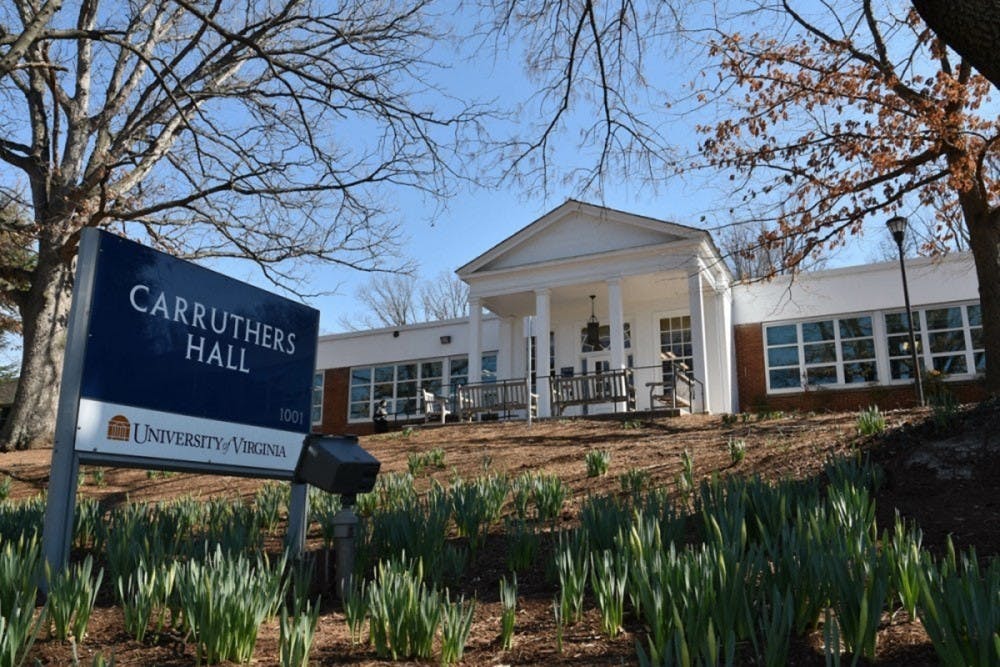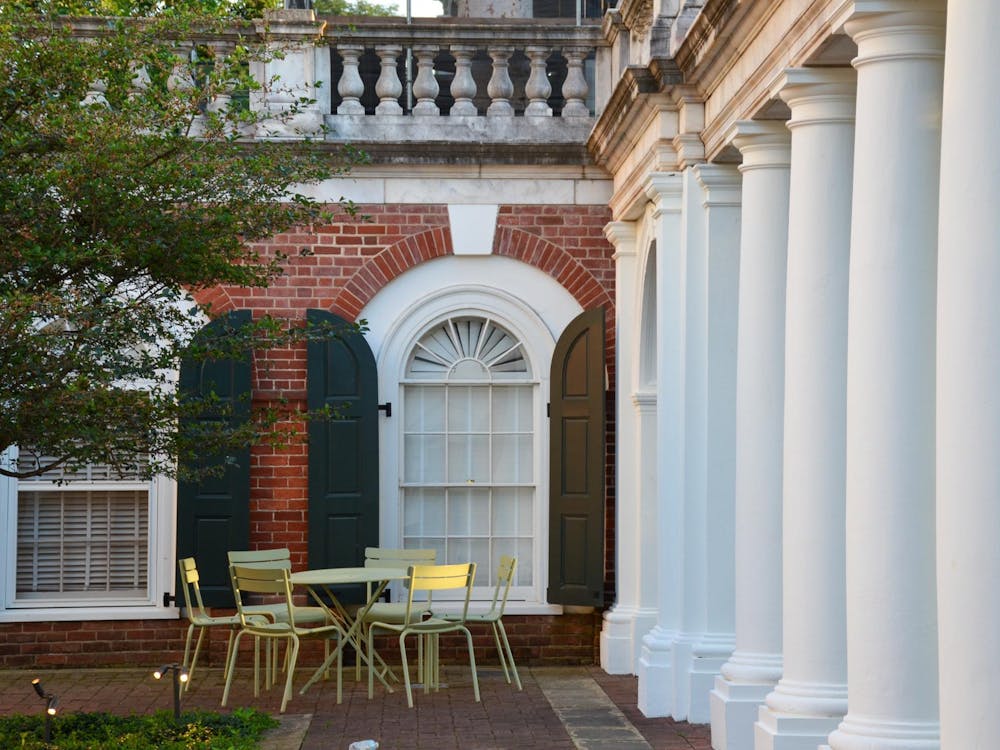When Nicole Leal, a fourth-year College student and president of DREAMers on Grounds, found out the University would start offering financial aid to in-state Deferred Action for Childhood Arrivals students this fall, she felt that the change “came out of nowhere.” According to Leal, ever since DREAMers on Grounds started at the University in fall 2015, one of the group’s main focuses has been advocating for undocumented students to matriculate financial aid at the University.
DACA was established by the Obama administration in 2012 to allow those who are undocumented and arrived in the U.S. as children to stay in the country. Leal said that while the change is a step in the right direction for the University, it now affects a miniscule percentage of the state population, particularly following the rescindment of DACA by the Trump administration in September 2017. According to a report by the U.S. Citizenship and Immigration Services in 2017, Virginia has more than 12,000 DACA recipients who live and work legally in the state — around 0.14 percent of the state population.
In a statement released on Twitter by DREAMers on Grounds in response to the change, the group highlighted that, after the rescindment of DACA, “as of October of 2017, only renewals are being reviewed; the USCIS has not been accepting any first-time applications for DACA… theoretically by 2025, there could be no undocumented students at the University.”
According to acting University Spokesperson Wes Hester, 22 DACA recipients are enrolled at U.Va. for the fall 2019 semester — 17 of whom are undergraduate students. Only students maintaining valid and lawful status in the U.S. are permitted to enroll in full-time study. George Mason University, however, enrolls more than 250 DACA recipients. GMU, along with Northern Virginia Community College and Marymount University, is one of three higher education institutions in the state of Virginia that is a partner college with TheDream.Us, one of the few scholarships available for DREAMers.
According to Laura Osberger, senior associate for communications and outreach at the State Council of Higher Education for Virginia, each institution decides admission and matriculation policies for undocumented students and students with DACA.
Under federal law, the use of state financial aid funds may not be applied towards students with DACA status, which is why the University is privately funding this initiative.
“We hope this announcement will encourage DACA students from Virginia to consider U.Va. since a financial burden could be lifted,” said Greg Roberts, dean of Undergraduate Admissions, in an email to The Cavalier Daily.
In order to meet DACA eligibility, students must have continuously resided in the U.S. since June 15, 2007 and arrived in the U.S. before the age of 16, among other requirements. The University’s current policy states that DACA recipients should apply through the standard process for admission to U.Va.
For Sebastian Yupanqui, a DACA recipient and third-year Commerce student, his main qualm with applying to U.Va. was not in the rigorous application process itself, but rather affording tuition, considering his ineligibility for federal aid. Yupanqui said he has worked two part-time jobs on top of his schoolwork at NOVA the past two years, which has detracted from his time to gain experience in his desired professional field.
“If I had known about this [change] prior, I wouldn't have been working these two jobs,” Yupanqui said. “I would've focused more on the internship I have right now. With my internship and the two jobs I have, there are some weeks in the summer where I've worked up to 70 hours a week.”
Yupanqui turned in his financial aid documents at the beginning of August to Student Financial Services.
Leal also pointed out the lack of transparency on admissions policies and resources for both undocumented students and DACA recipients who apply to the University.
“Undocumented students are allowed to apply, even pay for the fee to find out that they cannot matriculate,” Leal said. “That's a waste of time, money, energy and hope. There's nowhere on the website that tells undocumented students — you can do all of this, but we're still not accepting you, which is crazy unfair.”
According to Leal, DREAMers on Grounds and DACA recipients have had the support of Vicki Gist, assistant dean of students and director of multicultural student services. However, consistent contact with one person may not be enough. Leal also said financial resources for University students who have already matriculated differ from individual to individual.
“[Students] used to have monthly meetings with a couple of deans — Dean Gist being one of them,” Leal said. “And it would be a group meeting with all the DACA recipients, and then a lot of people just stopped coming because they just felt like it was pointless because nothing was really changing or happening and then [DACA] got rescinded.”
Roberts told The Cavalier Daily it is difficult for the Office of Admission to identify DACA high school students during the recruitment process since students rarely self-identify as DACA.
Leal said high school DACA recipients need substantial guidance on the college application process, considering many students are first-generation. She has met with the Virginia College Advising Corps to offer advisers UndocuAlly training, which provides an overview of the history and policies that affect undocumented youth, as well as resources. The VCAC was founded by the University in 2005 “to address the widening gap in college access for low income, first-generation and underrepresented students,” according to the group’s website.
“A lot of guidance counselors are not prepared,” Leal said. “A lot of them tell [undocumented students] not to pursue college — which is crazy, unfair and disheartening and totally hopeless.”
Roberts explained that the disproportionately low number of DACA students at the University in the past compared to peer institutions in the state of Virginia, such as GMU, was because of the lack of financial aid.
“I believe this is the reason why many of our current DACA students transferred to UVA from a Virginia Community College after two years instead of enrolling from high school as first-years,” Roberts said.
Roberts also said that the University does not enroll undocumented students who do not have DACA status, per institutional policy. Furthermore, graduate DACA students and out-of-state DACA students are not considered for need-based financial aid.
Gov. Ralph Northam (D-Va.) praised the University’s decision to make their financial aid available to those in the DACA program, writing on Twitter that “opening our doors to more students enhances the diversity that we know makes our Commonwealth stronger.”
The new financial aid for DACA recipients will be an “extension of AccessUVA, and funding will be provided through institutional private resources in support of AccessUVA,” according to Hester.
AccessUVA was launched in the academic year 2004-2005 and had previously provided low-income students with packages that were a mixture of grant aid and work-study. However, in fall 2013, the Board of Visitors voted to integrate loans into low-income students’ financial aid packages.
“Students with DACA status are here legally and are considered in-state students for purposes of admissions if they live in Virginia,” University President Jim Ryan wrote in a statement to The Cavalier Daily. “Our view is that they should also be eligible for financial aid, just like other students. It seems to us the right and smart thing to do. Our community is stronger when more students can afford to study here, and this change will help make a difference.”







